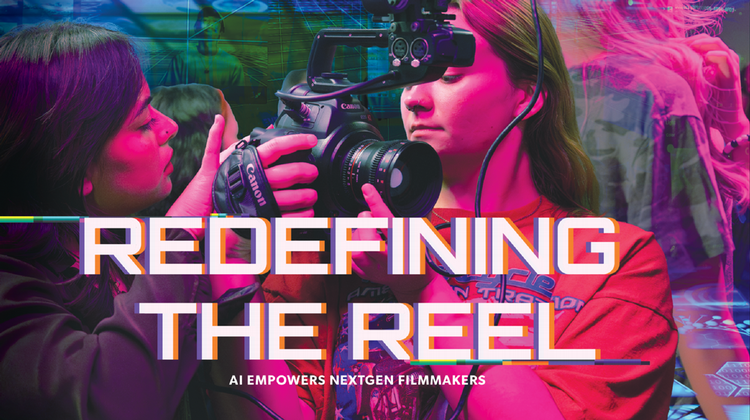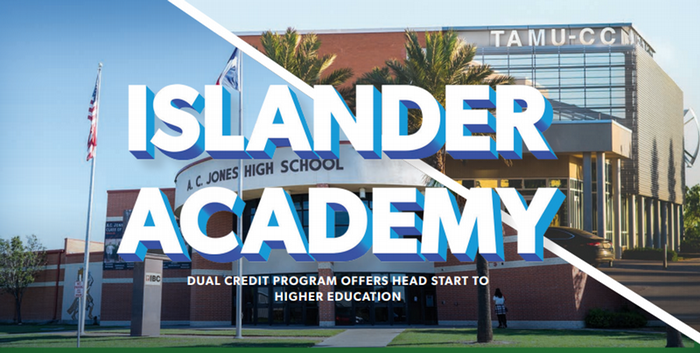Where Research Meets Reality: S-RISE Program Fuels Confidence and Career Readiness
CORPUS CHRISTI, Texas — Angel Runkel ’25 didn’t expect an undergraduate research project to shape her career trajectory. But through the Student Research and Innovation Summer Experience (S-RISE) program at Texas A&M University-Corpus Christi, Runkel discovered more than data — she found direction.
As an economics major, Runkel worked closely with Dr. Deniz Gevrek, Professor of Economics and Director of the South Texas Economic Development Center. Together, they explored research inspired by the long-term economic impacts of bullying, with a focus on differences between immigrant generations in the United States. Their work culminated in two national conference presentations and sparked new insights into the ways early experiences can influence future outcomes.
The summer 2024 project helped prepare Runkel for a full-time job, first as a market intelligence analyst and then as a planning analyst with the Port of Corpus Christi — roles she was offered prior to finishing her degree.
“Angel is very professional, detail-oriented, and incredibly gifted,” Gevrek said. “She managed complex tasks under pressure and still met every deadline. Those skills transferred perfectly into her job at the Port.”
S-RISE, sponsored by the university’s Office of Student Research and Innovation (OSRI) in the Division of Research and Innovation, gives undergraduate students an opportunity to participate in faculty-led research while receiving training and support. The goal is to foster critical thinking, real-world application, and professional development across a variety of disciplines.
“Summer research scholarship programs, like S-RISE, are powerful because they give students the time, space, and support to dig into meaningful work,” said Linda Ramon-Barbato ’03, OSRI Program Coordinator. “With dedicated mentoring, professional development, financial support, and fewer distractions, students can fully engage in the research process — often for the first time. These experiences not only build skills and confidence, but they also spark a deeper sense of purpose and possibility.”
For Runkel, the S-RISE experience was more valuable than a resume line.
“I gained confidence,” Runkel said. “At first I didn’t think I had the experience for this kind of research, but Dr. Gevrek helped me build that foundation step by step.”
Runkel’s study focused on a relatively unexplored area within economics: the bullying gap between native and immigrant populations. While most economic studies highlight topics like inflation, employment, or GDP, this project explored how social experiences, like bullying exposure, differs for various groups of American youth.
“This was a new topic for me,” Gevrek said. “We often separate economics from personal experience, but childhood bullying can influence educational attainment, income, and long-term health outcomes. That makes it a valid and important area of economic study.”
Initial expectations were that first-generation immigrant students might report higher rates of bullying. However, their findings showed second-generation students were more likely to report such experiences. Runkel found that those results, while surprising in a global context, were typical among similar studies focused on U.S. data. This phenomenon is called the “Immigrant Paradox” and is thought to be tied to the American identity of being a country founded by various immigrant groups.
“My father is a second-generation American, so I’ve seen how navigating between cultures can be confusing,” Runkel said. “It’s not always easy to figure out where you belong, and that tension can show up in ways you don’t expect — especially in how peers learn to identify with each other.”
Runkel’s role in the summer project involved reviewing scholarly literature, working with large data sets, and assisting with statistical analysis. The work was rigorous, but Gevrek said Runkel rose to the challenge.
“Angel was still learning advanced statistics when we started,” Gevrek said. “But she caught up quickly. I trained her how to read and interpret manuscripts, write literature reviews, and analyze the data. She even went beyond the basics and applied what she learned to a separate project in one of her classes.”
Runkel’s performance didn’t go unnoticed. During an internship at the Port of Corpus Christi during her junior year, the director of the Port’s Commercial & Business Development asked her to extend her internship. After that second internship term, she was offered a full-time position.
“Securing that job speaks volumes about Angel’s abilities and professionalism,” Gevrek said.
Geographically and symbolically, the Port of Corpus Christi is a gateway. For Runkel, it also represented the transition from student to professional, from theory to practice.
“Everything I learned in the S-RISE program, I use now,” Runkel said. “From data analysis to professional collaboration, the experience prepared me in ways I didn’t fully realize at the time.”
In her 15 years at the Island University, Gevrek has mentored many students, but she noted that Runkel stood out — not only for her intellect, but for her exceptional attitude.
“She’s curious and open,” Gevrek said. “You can train someone in methods, but you can’t teach that kind of drive. Angel has it. She’s going to go far.”
While their research on the U.S. bullying gap is now complete, Gevrek plans to build on it with a new project focusing on gender-based bullying patterns in Japan. Though Runkel’s professional path is taking her in a different direction, Gevrek said the work they did together laid the groundwork for future collaborations.
“Our research met its goal,” Gevrek said. “We filled a gap in the literature, and Angel developed skills that changed her career. That’s what this program is about — developing students, not just using them for assistance.”
OSRI hosted its second cohort of S-RISE participants this summer. They include 13 students from undergraduate, master’s, and doctoral programs, and represent a wide range of disciplines, including marine biology, history, environmental science, psychology, mechanical engineering, nursing, computer science, clinical psychology, media arts, and coastal and marine system science.

